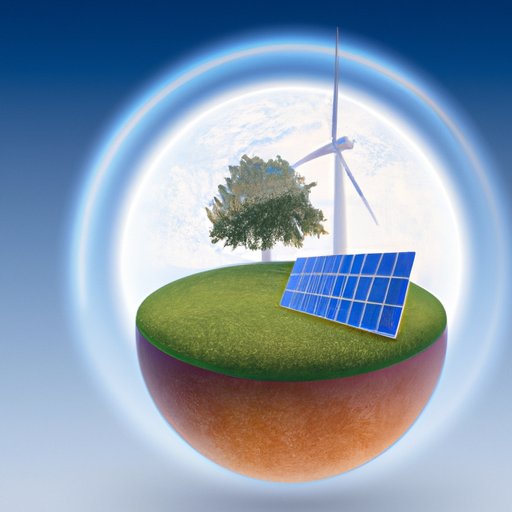I. Introduction
The sun is the central and most significant component in our solar system, providing light, warmth, and life to our planet. But have you ever wondered how the sun generates its power? In this article, we will explore the science, culture, and impact of solar energy, helping you gain a better understanding of the importance of the sun’s energy.
II. The Science of Solar Energy
The sun’s energy is primarily generated through a process called nuclear fusion. Through this process, hydrogen atoms are fused together, contributing to a continuous chain reaction that produces large amounts of energy. Within the sun’s core, temperatures and pressures are so high that the nuclear fusion process takes place continuously.
The energy produced by the sun is crucial for life on Earth, allowing plants to photosynthesize and produce carbohydrates that support the food chain. Additionally, the sun’s energy drives the Earth’s climate and weather patterns.
III. The Historical and Cultural Significance of the Sun
The sun has played a significant role in religious and mythological beliefs throughout history, with many cultures treating it as a god or goddess. For instance, ancient Egyptians worshipped the sun god Ra, while the Inca civilization believed the sun to be the ruler of the skies.
In modern times, the sun has come to represent various societal values, including optimism, hope, and renewal. Many cultures associate the sun with warmth, light, and positivity.
IV. Studying the Sun
Astronomers have developed various tools and methods to conduct research, including using telescopes and spacecraft. Through their research efforts, scientists have learned a lot about the sun’s energy production and how it affects Earth and other planets in our solar system.
For example, we know that solar flares and coronal mass ejections can harm technology and electricity grids. Scientists also use these tools and methods to monitor sunspots and solar cycles to predict how the sun’s energy output will change over time.
V. The Potential of Solar Energy
Advancements in technology have made solar energy more accessible to people all over the world. Solar panels, for instance, are becoming more efficient and affordable, allowing people to use renewable energy sources in their homes and businesses.
Solar energy is a renewable source of energy, meaning it has the potential to last indefinitely. By tapping into solar energy, we can reduce our dependence on non-renewable energy sources like fossil fuels.
VI. The Impact of Solar Energy on Climate
The sun’s energy has a significant impact on Earth’s climate, and the study of solar radiation is critical in better understanding the planet’s climate and how it has changed over time.
Global warming is a phenomenon that has been linked to increased solar radiation. Human activities like burning fossil fuels also contribute to climate change by increasing the concentration of greenhouse gases like carbon dioxide in the atmosphere.
VII. The Future of Solar Energy
New technological innovations are making solar energy more efficient and cost-effective than ever before. This, combined with the increasing demand for renewable energy sources, is causing a shift in the global energy landscape.
The potential for solar energy to meet our energy needs sustainably is enormous. Not only can it help us reduce our carbon footprint, but it can also provide power to communities that lack access to traditional electricity sources.
VIII. Conclusion
Understanding the science, culture, and impact of solar energy is of utmost importance for our planet’s future. With new technological advancements, the potential of solar energy is immense, and it could revolutionize the way we think about energy. By investing in renewable energy sources like solar energy, we can build a brighter and more sustainable future.
(Note: Is this article not meeting your expectations? Do you have knowledge or insights to share? Unlock new opportunities and expand your reach by joining our authors team. Click Registration to join us and share your expertise with our readers.)
